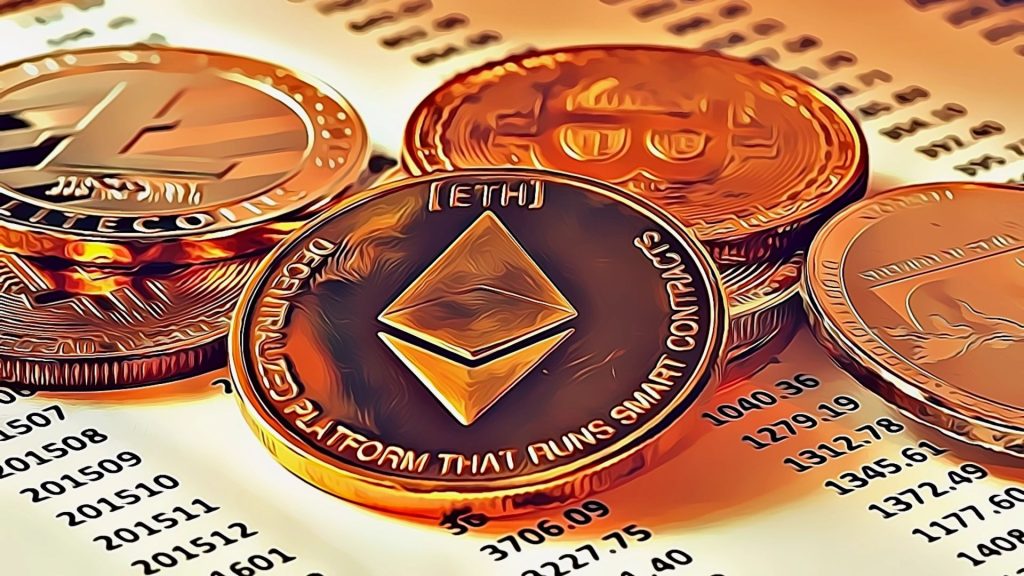Instant Payment Series: Money Is No Matter


Immediate solutions fundamentally change our behavior by reconnecting us with the fundamental laws of nature. The existing paradigm reflects the primary obligation to earn profit in return for one’s labor, that is, working for survival, but the hourly wage system in the labor market creates incentives to get something for free. As discussed below, everyone across the entire “fiat stack” optimizes their efforts to achieve this at various levels. How can I make money for free? Exploring the effects of immediate resettlement across a variety of industries, the fundamental divide between workers and clock-watchers is revealed, as I have argued throughout this series. Fiat payments are made without immediate settlement. Instead, virtual credit arrives immediately, and actual payments typically occur much later. The Lightning Network enables instant payments. This is its main advantage, and why Bitcoin is the only financial network that has the potential to achieve the vision I describe in this series.
The fiat currency system is unknowingly training us to play a rent-seeking game, and it is no surprise that the best players tend to be the richest. In our first jobs, we learn how to get the most rewards with the least effort, and incentives reward creative ways to do just that. The first trick everyone learns is how to “save time” by doing as little work as possible without getting fired. A slightly more advanced skill is learning how to give credit for other people’s work. Skilled players seek promotion to gain access to the labor of others for their own benefit. This is a fiat game.
As if that wasn’t bad enough, rent-seeking games also corrode skills. Just as results in the gym are correlated with the effort put into a workout, employee mastery comes from effort. However, time-based rewards can diminish skills because they reward the passage of time rather than performance. In technologically primitive societies, technological development was essential for survival. The problem was friction. It was about valuing each small action and rewarding each one individually. So the obvious way to reduce friction was to reduce all operations to a single variable: time. But decades of time-based rewards and diminished initiative have left us helpless, weak, unskilled, and dependent on free money. The result is a culture of dependence where the pursuit of easy money overshadows the pursuit of self-improvement. How many steps does it take to enslave our children to avoid work?
Perhaps the key to overcoming this fate is to stop chasing the damn money and instead pursue another goal and decide to use the money to achieve it. Make a list of what you want in life and work towards it. Instead of working paycheck to paycheck, saving money, and buying a house, you can build your own. Yes, it will take years, but that is the point. Do the work! If you’re objecting that you can’t build a house, you’re probably right. You can’t do anything until you can do it. All you have to do is place one brick on top of another, put a roof on top of a wall, and so on. Work changes us, making us better, faster, stronger and more skilled than we were before. Bitcoin preserves the value of your energy, allowing you to achieve your goals faster than possible with fiat currency. When you work for someone else’s goals, you should be rewarded immediately, which is almost like double the reward. You can get skills and money. In a fiat system, when you get free money (money for wasted time), you don’t acquire any skills, and the skills you have start to atrophy because you don’t use them. The only incentive that gets people to do something is the fear of getting fired. That’s why they try to find a balance between doing the bare minimum and not getting fired.
But undeniable obstacles remain. Why work for money rather than simply wait and get paid without putting in the effort? The status quo is comfortable, but comfort is the enemy. Defeating this enemy requires a collective will to break away from the temptation of easy gains and embrace a more natural and purposeful way of working.
Those who avoid time-based compensation will have the advantage of attracting and retaining the best individuals as employees. As these forward-thinking people continue to evolve, becoming faster, stronger, and more skilled over time, their products and services will outshine the hourly pay system.
In the new market environment I’ve described throughout this series, employees who are paid for their work instead of their time are no longer tied to a single company. The quality of products and services is driven by the joint efforts of contributors, rather than a clockwork milking machine overseen and pushed by management. Exploitation of labor is no longer defensible, and pay for labor is what retains the best talent. This is true because the best people want to be paid based on results, and the only fair compensation for both employees and employers is pay per job based on those results.
This newfound power can lead individuals to focus on what they want to be built rather than what the company is telling them to build. Not only do they earn a spread of income, but they also benefit the most from the tasks they complete. If there was a public project to fix 10 roads, I would contribute to fixing the roads I use the most. It is the most selfish and selfless thing to do. The benefits are not personal. It is shared. The money I receive is private. As long as we chase money before projects, it’s no surprise that we’re indifferent to other people’s problems. In this new paradigm, the balance of power shifts decisively to the people, aligned with their preferences and aspirations rather than the agenda of a single company.
Additionally, the pay system reflects the competitive nature of the sport. Individuals are rewarded for their time and effort, but winning depends on active participation and skill. In sports, the best players differentiate themselves through their outstanding skills, effort invested, and adaptability to competition. This natural dynamic favoring the fastest, strongest and most adaptable can now enrich the labor market. Survival and prosperity depend not only on individual effort but also on the ability to outdo others in the pursuit of greater profits. Even people simply chasing money are enjoying prosperity simply by mirroring Bitcoin. When I act selfishly in Bitcoin, the entire network benefits.
In the world of sports, fame and fortune often come with the best athletes, but their initial motivation lies in the desire to be the best. Salary Labor market incentives take the form of payments and promote continued commitment and development. Similar to encouragement, as these payouts accumulate, people hone their skills and improve their performance, ultimately receiving more Bitcoin as recognition for their efforts.
The reward in this system is not cheers or praise. It begins with the need for money and develops into the satisfaction derived from work. Immediate solutions become Trojan horses that lead us back into this mentality. In this continuous competition, unlike the win-lose dynamics of war, everyone stands to gain. While individuals work on their own based on their desire to achieve their own goals, finished products are mostly collective goods and therefore simultaneously satisfy common needs. Completing work that benefits the community more quickly, efficiently, and cost-effectively triggers a snowball effect where subsequent benefits build upon previous benefits. In an interconnected web where everyone works together efficiently, there is no room for theft or exploitation. Rather, it is a shared journey toward collective improvement.
Part-time pay allows people to try to climb the hierarchy and gain the privilege of delegation, which allows them to shift blame and find scapegoats. In contrast, pay for work based on an immediate settlement system operates like an immutable and non-negotiable law of physics. All individuals take full responsibility for their own work. This paradigm evaluates individuals by their sense of responsibility and commitment to completing the task at hand, rather than by their tendency to blame or obsess over problems. Because top performance yields the most money, more hours equal more money, and unlike hourly pay, which has little to do with the job, pay by the number of hours worked makes work a priority. In a pay system, accountability becomes a measure of personal and professional integrity and fosters a culture that focuses on getting work done efficiently and collaboratively.
Roy Sheinfeld, Breez CEO and my boss, said you shouldn’t tell people what experiences they should create in your app. I agree. The point of the previous chapter was to bring attention to the possibilities so that professionals can create such experiences. I am not one to say how industries such as construction, logistics, book publishing, etc. should develop. I am trying to open a window for them to realize the potential they have to create and build for all of us. This way we all win. They receive Bitcoin, and we use it more efficiently to do things that enrich our lives. This collaborative venture invites you to explore, innovate and contribute to a shared future that is attainable for all.
The following is a brief summary of messages from previous articles in this series.
First article: Construction industry
- What is work?
- Conflict between people who are told to work but who benefit from spending time without working.
- Reputation is determined by the work done, not by someone’s title.
Second article: Logistics industry
- How delayed payments create counterparty risk.
- How intermediaries (banks) exacerbate risk.
- A way to align everyone’s incentives to deliver on a project through installment payments.
- Decentralization promotes competition.
Third article: Publishing industry
- The dematerialized economy is now on steroids.
- The profits of any job are determined more by the demand than by the supply of the job.
- Speaking and selling are not the same, so the best way to compensate influencers is through commissions.
Fourth article: Live streaming payments
- Profiting from your work can be an ongoing process through streaming payments.
- Global benefits require global rewards.
- Event seat auctions can transform live entertainment.
Fifth article: Gambling industry
- Fiat is a gamble.
- Licenses and certifications disadvantage the poor and strengthen the power of the rich.
- How to invest wisely.
Transition time is important. If a company suddenly switches to a performance-based pay model without considering its existing workforce, this can create anxiety and cause employees to leave for companies that pay by the hour. Companies that recognize the need for change should adopt a long-term perspective and implement two payment methods simultaneously: hourly payment and instant payment. The goal is to allow these methods to coexist to attract top performers and foster a culture of excellence. Once a company builds a base of high-performing individuals, it can do away with the hourly pay structure entirely. I get inspiration for this approach from a distant mentor, Jeff Booth. This is because these two systems represent distinct paradigms and require careful, strategic shifts rather than sudden changes.
Here is my final message:
Build utility and don’t promise future good fortune.
Don’t wait or ask permission to do things. Do what you want to do.
Let’s fucking go!
This is a guest post by Ivan Makedonski. The opinions expressed are solely personal and do not necessarily reflect the opinions of BTC Inc or Bitcoin Magazine.



